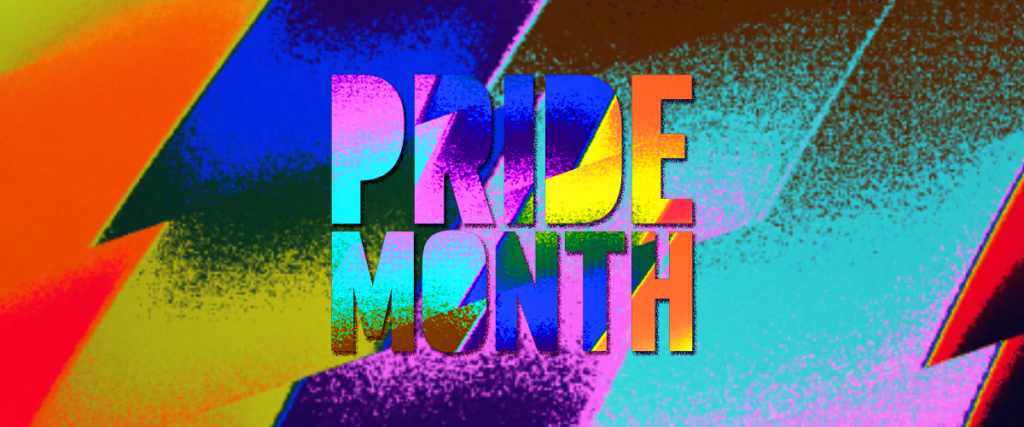
Putting Pride In Privacy
Coming out is the definitive queer right of passage. The main event with no closing night. Often seen as a one-off, in reality we’re constantly judging whether to come out based on who’s around, where we are and what’s going on. The right to privacy gives us some choice over this.
Outed by data
Society assumes straightness and gender conformity. It’s on us to declare our contradiction and deal with the reaction. You may have accepting friends, but an abusive family or live in a homophobic area. Privacy lets us manage those complicated situations, offering safety from violence or ostracisation.
What this means in the digital realm can be just as pernicious. Life online empowers the LGBTQIA+ community to come together. It nevertheless carries risks. As Christopher Wood for LGBT Tech says, “potential violations [of privacy] can lead to privacy harms in the form of online outings and harassment.”
In 2021, Grindr was fined for illegally selling data to advertisers that included location, age and gender. In 2018, the company was found to have shared HIV information alongside GPS data, phone ID and email to third parties. Such data can be used to identify a specific person, outing them to the unknown.
Data discrimination
Under the Data Protection and Digital Information Bill, it’ll be easier for our data to be gathered and shared. Algorithms will use these digital profiles to make decisions affecting healthcare, insurance, housing and employment. Yet algorithms reflect biases in society and deliver discriminatory outcomes.
Sandra Wachter from the Oxford Internet Institute has raised the alarm about discrimination by association. Algorithms can be trained to find proxy data about interests to identify marginalised people and sidestep equality protections. This could exclude different groups from certain “products, services, or prices on the basis of affinity.” The DPDI Bill will make it more difficult to challenge these practices or find out about what’s stored about us through subject access requests.
With councils using algorithms to make decisions over access to services, such as housing and benefits, we need stronger data protection. The government instead prefers the opposite with the DPDI Bill, setting the stage for more data discrimination in the context of 1 in 4 trans people already facing barriers when looking for housing.
Data could expose LGBTQIA+ migrants and refugees to harm where they face oppression in their country of origin. The DPDI Bill enables data transfers to other countries without guarantees of strong data protection laws. In some countries, data and communications are being used by the police as evidence to persecute mostly trans women and gay men. The DPDI Bill will make oppression easier.
Queercyption
We deserve a data system that’s secure by design. This isn’t what we’re getting, which is why many people in the LGBTQIA+ community rely on encryption. As Chelsea Manning wrote, Don’t Ask Don’t Tell forced to her live a double life, with encryption as a protective shield.
Even so, the government is set on undermining end-to-end encryption in the Online Safety Bill. They want to create powers that’ll force companies like WhatsApp or Signal to have our private messages scanned before they’re encrypted. In effect, this is a back-door that could be exploited by bad actors.
ORG signed an open letter to stress the “vital importance of encrypted communications for victims of domestic abuse and for LGBTQ+ people in countries where they face harassment, victimisation and even the threat of execution. Far from making them safer, denying at-risk people a confidential lifeline puts them at greater and sometimes mortal risk.”
All Watched Over by AI
As AI further maps our lives, new ways of discriminating against marginalised groups become apparent through the capture of biometric data. One example is automated gender recognition (AGR), using facial scans that focus on aspects like face shape, make-up or hair length.
The modelling of AGR results in misgendering and an effective erasure of trans or non-binary people. It’s been used to deliver adverts designed for men or women, but has the potential for use in limiting “entry to gendered areas like bathrooms and locker rooms.”
Queering the digital space
The queer experience is one of being in and out at the same time. With privacy there’s also expression; when we choose to share our story and ourselves. The Internet is a rich trove of every hue of the rainbow. Sadly the Online Safety Bill threatens this, as the government is trying to sanitise social media.
The LGBT Foundation warns that the Bill could damage the Internet “as a place to form connections, access vital resources and share experience” for the community. Through a combination of algorithmic content moderation and large fines for tech companies, we’ll end up with over-moderation. In a world where drag is considered dangerous, queer expression could be purged from the Internet with a limited right of appeal for users.
The Online Safety Bill also brings in state enforcement of a platforms’ terms. A class action lawsuit was launched in 2019 against YouTube, alleging that their algorithm discriminates against LGBT people. The LBGT Foundation points out that YouTube’s ‘broad and vague’ guidelines result in content being restricted incorrectly. This has also been seen with Facebook blocking gay-themed adverts. The existing catalogue of censorship against queer expression is a bad omen for what this badly drawn piece of legislation has in store.
LGBTQIA+ Digital Rights
We are witnessing galvanised homophobia and transphobia. Hate crimes against the LGBTQ+ community have more than doubled in five years from 2016-2022 and crimes ‘aggravated by someone’s sexuality’ has more than doubled over 10 years in Scotland. The Rainbow Map has knocked the UK down to 17th place in the list of LGBTQ-friendly European countries.
We need privacy and an Internet that can give space for the LGBTQIA+ community to find strength together in the fight against discrimination.
KEEP UP TO DATE WITH OUR CAMPAIGNS
Subscribe to our newsletter to receive updates on the latest developments affecting your digital rights.
Sign Up Now